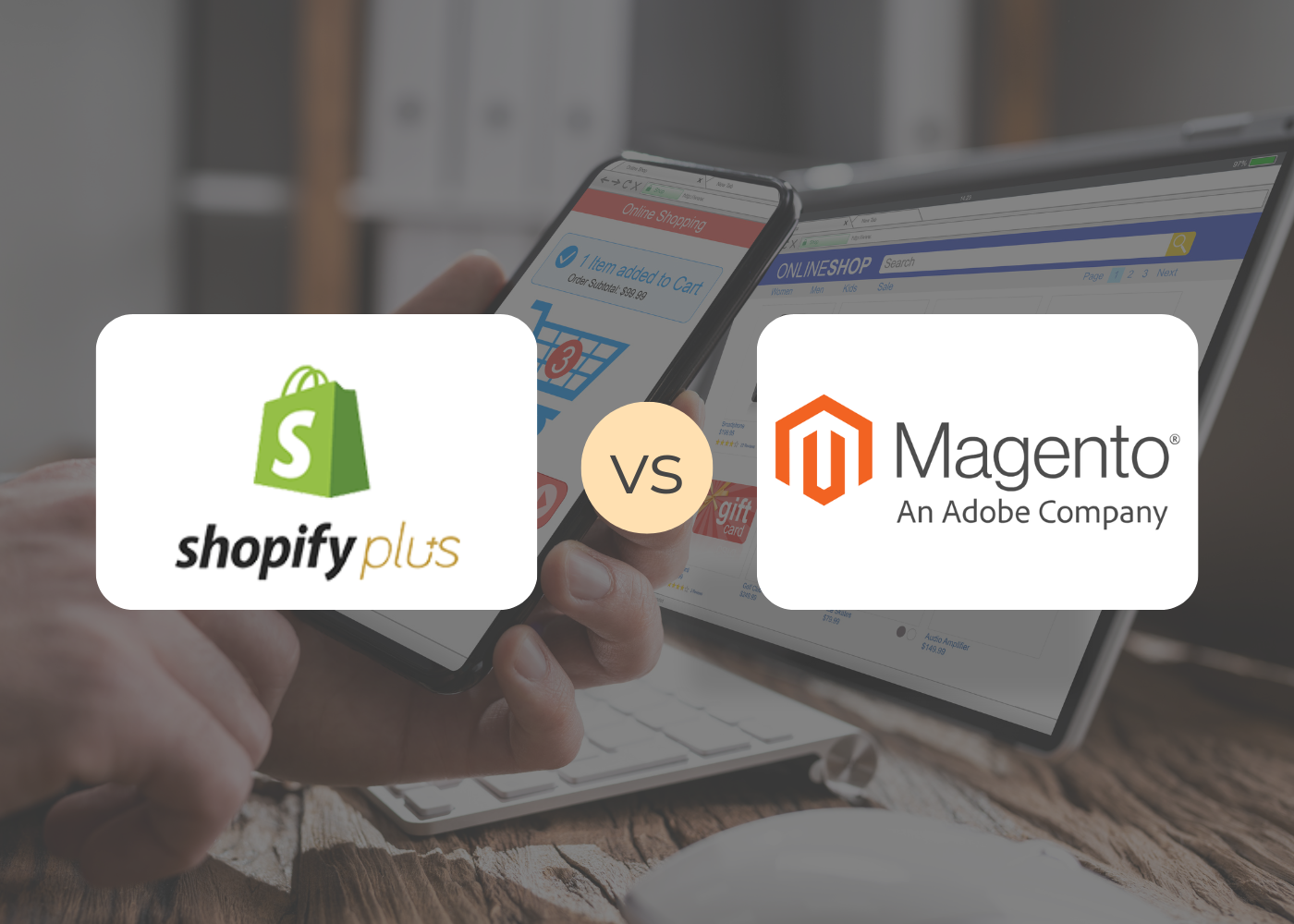Choosing an eCommerce platform is one of the most important decisions you can make for the future of your eCommerce business. Yet navigating the options on the market today can be overwhelming. How are the platforms different? What should you take into consideration? Perhaps most importantly, how can you cut through the marketing language to find the best fit for your brand?
We’re here to help. In our Gauge Compares article series, we lay out your options and highlight the strengths and weaknesses of each platform. You can check out our comparisons of Shopify vs. Volusion and Magento 2 vs. Shopify Plus. Today, we’ll walk you through some of the key differences between Shopify and BigCommerce.
Full disclosure: Gauge is a Shopify Plus partner, and we don’t currently design or build sites on the BigCommerce platform. We love what Shopify is doing in eCommerce, but there are benefits and drawbacks to all platforms. For this article we used information found on BigCommerce.com, Shopify.com, and other third-party resources.
Market Share
BuiltWith analyzed the numbers; here’s how they stack up.
| Shopify | BigCommerce | |
| Top 10K eCommerce Sites | 10% | 1% |
| Top 100K eCommerce Sites | 7% | 2% |
| Total Live Sites | 672,846 | 66,693 |
While these stats don’t say much about performance or features, this does tell us which platform is more widely accepted, especially among top-tier sites. This metric is pretty straightforward; Shopify is the clear leader in Market Share.
Hosting & Stability
Both Shopify and BigCommerce are hosted solutions. Your hosting is built into the monthly cost of the platform, leaving you with one less thing to worry about. BigCommerce claims the “Most Reliable” ribbon with a 99.99% uptime. Shopify is hot on its heels at 99.98%. Both platforms offer a live status feed that monitors uptime and downtime. You can also check out their historical reporting to see how quickly incidents were resolved:
Features & Apps
Both platforms provide eCommerce merchants with the essentials needed to run an online store, and both offer additional features through their app ecosystems. Shopify offers about 2,400 apps altogether (free and paid). BigCommerce has a much smaller ecosystem with 500 apps.
BigCommerce is often touted as a more feature-rich platform right out of the box; their messaging downplays the need for third-party apps. But when we tried to determine what specific features it offers that Shopify lacks, we could only identify two: native customer wishlists and a native product review function. Even this is misleading though, as Shopify offers a free product reviews app that is a one-click install. Without a list of specific features needed, it’s tough to tell who wins this round.
Long-Term Value
Shopify has quickly become an industry standout for constant innovation. They deliver new tools to simplify the merchant’s job at a rate far above any other platform on the market, including BigCommerce. Combine that with their financial security as a publicly traded company (NYSE:SHOP), and you’ve got a recipe for long-term sustainability and value.
Support
Shopify and BigCommerce both offer 24/7 support via email, live chat, or phone. Shopify was the first to offer this, but BigCommerce has made changes to match that level of support. It’s a tie in this area.
Pricing
Monthly pricing for both platforms is relatively comparable. BigCommerce doesn’t charge any transaction fees. Shopify doesn’t charge transaction fees if you use Shopify Payments, but they do if you opt for another payment processor.
Due to its extensive app marketplace, Shopify does have a higher potential for hidden costs. Relying too much on third-party apps can add up. There’s a flip side to this too though. A wider app selection and more competitive app marketplace could mean more price points to choose from for a specific feature or service. Overall, it looks like BigCommerce has an advantage in this area.

Looking to Switch?
If you are looking to migrate your eCommerce store, our comprehensive project discovery and planning services can help you determine what your next step is.
Conclusion
Both platforms would be a great fit for an entrepreneur setting up their first eCommerce store. However, for an established business that is looking to upgrade to a platform that will be around for the long haul, Shopify Plus is the way to go. Shopify delivers blazing fast site speeds and regularly deploys new features to their platform. These factors propel Shopify to the front of the pack.




